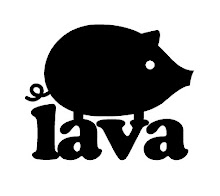
I have often questioned whether feeding our animal friends a vegan diet is the right thing to do. I am passionate about being vegan and of course, I want to transform everyone I love into a vegan but I try not to push my beliefs and values onto other people. With that in mind, I've never tried to "push" my veganism on any of my pets either. (Although, of course, I'm the one who decides what my cat and dog eat in the end, no matter what the decision, so I guess I'm pushing something either way!)
I've been doing some research on this, and it seems that vegan food is actually quite healthy for cats and dogs. Nevermind the fact that cats are "naturally" carnivores. There's nothing natural about a cat living inside a house and being taken care of by people. There is nothing natural about giving your pet cat or dog shots against rabies either. So the nature thing is really not a valid argument in my mind.
I found an article about a cat sanctuary in India that experimented with vegan cat food. I will try to come back to this topic, because information is scarce and most of what I read is promoted by companies that are selling vegan pet food. Although, if they are successful in selling.... i guess that means that the food is working for the pets and their owners. I think I will definately give this a try with my next animal, and I will let you know my results.
Here is the article for your reading pleasure:
Cats go vegan in Asia's biggest feline shelter
West Bengal, India, 09:15 AM IST
Kolkata - In Asia's biggest shelter for rescued cats, the feline inmates are turning vegetarian these days, thanks to animal lovers who import alternative Italian food for the furry laptops.
These days the cats in Karunakunj, a centre for rescued animals near here run by the Compassionate Crusaders Trust (CCT), are getting addicted to an Italian food which is completely vegetarian.
'To avoid serving non-veg food to cats some of our animal-loving patrons thought that we should try to find out an alternative vegetarian food which can provide cats required nourishment and at the same time save innocent lives of other animals,' said Debasis Chakraborti, founder of CCT, a strategic partner of Maneka Gandhi's People for Animals (PFA).
'After a lot of search the animal lovers found a company in Italy - AMI Srl - which can supply 100 percent vegetarian food without any ingredients of animals or insects but having all non-veg food qualities,' said Chakraborti as he laid out the veggie spread before the residents of the cattery.
Karunakunj, about 25 km from here in Thakurpukur area of South 24 Parganas district, is an animal farm complete with freely roaming dogs, an aviary, a burial ground for pets and the biggest cat shelter of Asia where even the walls are painted colourfully like a Disneyland and props like logs fitted to keep the cute creatures rolling in their playful mood.
'Of the 90 cats in our shelter we have chosen 10 (for veg food). We weighed them before introducing them to the food and then segregated them from the rest. They have fully accepted the food and in fact are overfeeding themselves,' said Chakraborti.
'The ones who are not separated are also given the food and they all are liking it as well,' he said.
This dietary change, launched last week, was inspired by the principle of non-violence advocated by the Jain religion.
'I am an animal lover and a Jain by religion. So hurting even a small ant is unacceptable to us. After a lot of searching we could locate this company in Italy,' said businessman Bulbul N. Shah who along with M.N. Shah, another animal lover, sponsored the food to begin with.
'I hope we would continue to get the programme organised and sponsored as both Jains and non-Jains from across the world would come forward to promote love and care for the animal world,' Bulbul N. Shah hoped.
Said Chakraborti: 'As it is difficult and expensive to import small quantities we can provide pet lovers with food at a nominal handling charge which will in turn support our financial needs.'
Bulbul N. Shah said, 'Shelf-life of this food appears to be six months and therefore four months consumption can be ordered at one time as two months time should be kept for transit.
'If we are successful in sending right message to right place, requirement will grow fast to bring down carrying cost considerably.'
source:http://www.indiaenews.com





